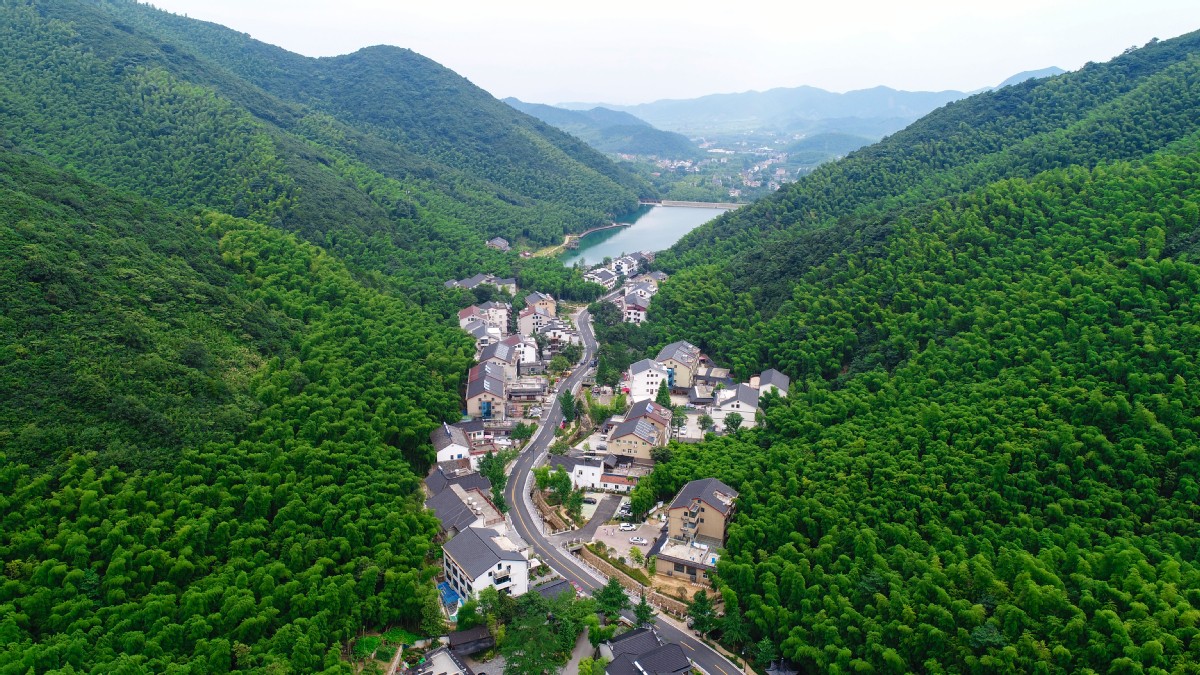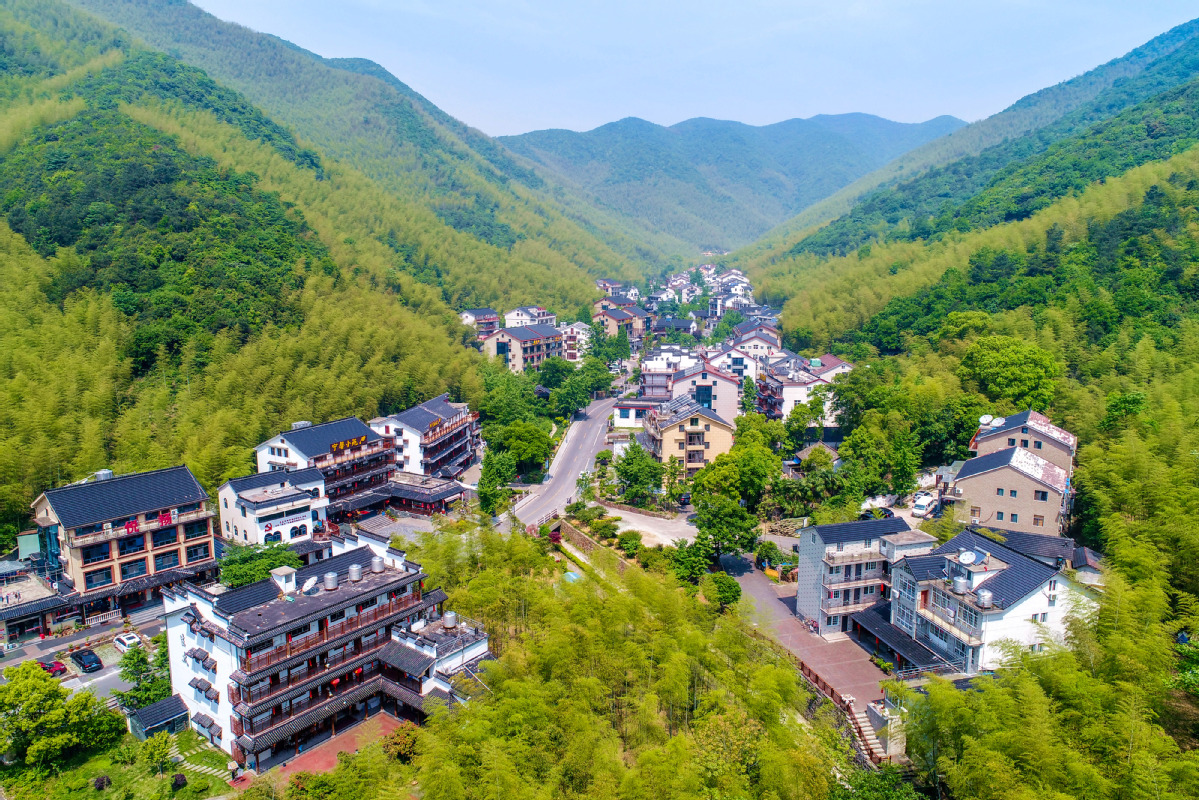No place like homestay as rustic approach pays off


Homestay owner Zheng Yunfang has been busy answering customers' calls, taking down their information, while checking the booking status of her hostelry since early August.
"Our 18 guest rooms were fully booked over the past few weeks, and we've received bookings up to November," says Zheng, in her 50s, who runs Ziming Mountain Villa in Shuikou village, East China's Zhejiang province.
Most of her guests have been to her place before, and they often bring in new guests during their visits, Zheng says. "By the look of things, business shouldn't be a problem in the second half of the year."
As cross-provincial tourism has resumed nationwide, locals in Shuikou are back in business and looking forward to a full recovery of the local tourism industry.
Just walking distance away from Zheng's villa, another local homestay owner, Song Chaofeng, in his 30s, has begun receiving visitors as well.
He is starting to reap the reward of an earlier promotion of his homestay on the short-video app Douyin, also known as TikTok. As an experiment, Song made a video featuring local food and landscapes earlier this year and uploaded it online after a bit of simple editing.
"It was a total surprise that several thousand people watched it the next day," Song says.
Tourist Qi Jia, in her 30s, recently visited Song's place with her family after flipping through Song's Douyin account.
"My child loves playing table tennis here, and my parents love the distinctive rural-style breakfast, with fresh and nutritious food that is picked right from the field," says the traveler from Shanghai. "It feels right to come here."
At the moment, Song says he will focus on maintaining the quality of his homestay operations and updating his fans online on the latest developments.
"Hopefully, they can all come here and experience what we have to offer," Song says.
Shuikou village is home to 10,000 residents, and about 30 percent of them are engaged in the homestay business. The village has evolved into one of the major rural tourism destinations in the Yangtze River Delta region over the years.

The COVID-19 outbreak dealt a heavy blow to the village, where tourism has been a pillar industry.
For several months, many local villagers couldn't sell their farm produce, much of which was prepared for tourists.
"We've been thinking about how to turn the crisis into opportunities," says Zhang Yuhua, director of Shuikou's ecology and tourism office.
Some of them first tried to sell stockpiled agricultural products online, which turned out to be an effective solution.
"We had more than 800 orders in just a week," says Jiang Caihong, a local homestay owner, who began to sell fresh food through her WeChat account.
"Many guests were quarantined at home and couldn't go out shopping," Jiang says.
To date, about one third of the nearly 600 homestay business operators in Shuikou have managed to get an income from selling local agricultural products and specialties online, according to the local authority.
"It's not just a new approach for villagers to increase their income, but also an effective way of maintaining customer relationships and expanding the source of customers," Zhang says.
The pandemic has also urged locals to push ahead with upgrades to their homestay facilities and service infrastructure.
Before the outbreak, the village had enjoyed good tourism business, but most operations were not quality-driven and featured an underdeveloped service concept, he says. "During the pandemic prevention and control period, people increasingly preferred high-quality travel, which requires us to adapt and change."
The village launched a campaign to spruce up courtyards and, during the past few months, offered improvement advice for individual homestays.
Decorative walls, trees and flowers have been put in place, and buildings along the village road have been given a face-lift.
The idea is to create a spectacle every step of the way, he says.
Local homestay owners have also joined various training sessions to learn what makes a good host, such as tea making, musical instrument recitals, cooking and photography skills.
So far, a tourism project that digs into the Tang Dynasty (618-907) culture while showcasing modern Chinese trends is under development and will come down the pike in September, according to Zhang.
"Most of our customers have been middle-aged or seniors, so, hopefully, this program will attract more young people," he says.

































